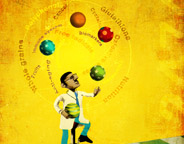 |
 |
|||
| July 1, 2009 | ||||
 Javed Butler, MD, MPH |
Sound Science: Predicting and Preventing Heart Failure Listen to Sound Science as Javed Butler, director of heart failure research at Emory, talks about prevention and treatment and describes the Health ABC Heart Failure Model for predicting risk of new onset heart failure. The model is a scoring system that can help understand the five-year risk for heart failure. Read and listen. . . |
|||
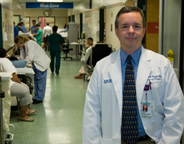 David Wright, MD |
Progesterone vs.Traumatic Brain Injury Gets Nationwide Evaluation Most people know progesterone as a female sex hormone, but Emory scientists discovered long ago its presence and value in both male and female brains. A recent clinical trial found promise for progesterone in reducing death and disability after brain trauma. Using a new NIH grant, Emory now will lead a nationwide study of progesterone in 1,140 brain trauma patients. In Atlanta, Grady Hospital is the lead center. Read more. . . |
|||
Move Over Free Radicals; Sulfur Takes Center Stage in Oxidative Stress Antioxidants, such as vitamins C and E, have been credited with soaking up free radicals and cushioning cells from the damage of oxidative stress, such as heart disease and cancer. That hasn't held up in clinical trials, though. An alternate theory redirects the focus from free radicals to sulfur-containing molecules -- important control points for regulating oxidative stress. Read more. . . |
||||
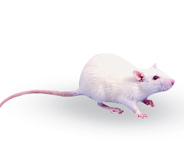 |
Genetically Engineered Mouse Helps Sort Out Parkinson's Non-Motor Symptoms The classic symptoms of Parkinson's disease are tremor, stiffness, and slow movements. Recently neurologists have been focusing on non-motor symptoms, such as digestive and sleep problems, loss of sense of smell, and depression. Most of these don't respond to the most common drug for Parkinson's, but a new mouse model will help focus on causes and possible treatments. Read more. . . |
|||
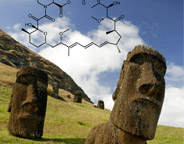 Rapamycin was discovered in soil from Easter Island. |
Transplant Drug Stimulates Immune Memory, Could Help Strengthen Vaccines Rapamycin, an immune-suppressing drug given to transplant recipients, has a surprising and paradoxical effect on cells responsible for immune memory. In experiments in mice and monkeys, rapamycin stimulates the formation of memory CD8 T cells. The discovery means drugs like rapamycin could be used to create better vaccines, which rely on immune memory. Read more. . . |
|||
|
||||
 |
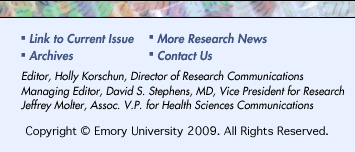 |
|||
